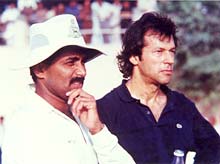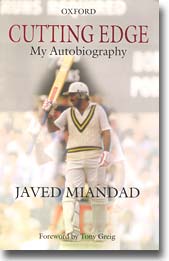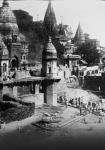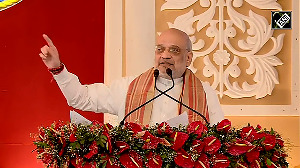A move was afoot to unseat me and make Wasim Akram the new captain of Pakistan. The origins of this move could ultimately be traced back to Imran, whose influence was still very strong. Imran was close to all the top Board officials including the chairman and the secretary, and had formally been retained as a Pakistan Cricket Board advisor.
I don't know what Imran's motives were; I can only guess at them. Perhaps he felt an undisturbed Miandad captaincy would overshadow his legacy. Imran had not formally retired after the 1992 World Cup. He had injured his shoulder during the World Cup and it was more or less understood that by then he had played the last of his international cricket. Just before I departed for England for the Test series, the Pakistan Cricket Board secretary, Shahid Rafi, assured me that I was going to remain as captain of Pakistan for as long as I continued to play. Imran, he said, was not in the picture at all.
 Imran was very much around in England when I took the team there at the beginning of the 1992 summer. He was writing columns and articles in the English press and wrote a few pieces where I thought he was trying to disclose our weaknesses and our strategy. In one of his columns he wrote that the Pakistani batting would be most exposed on seaming wickets. It wasn't as if he was revealing state secrets to the enemy, but it wasn't the sort of thing you expected from your immediate past captain.
Imran was very much around in England when I took the team there at the beginning of the 1992 summer. He was writing columns and articles in the English press and wrote a few pieces where I thought he was trying to disclose our weaknesses and our strategy. In one of his columns he wrote that the Pakistani batting would be most exposed on seaming wickets. It wasn't as if he was revealing state secrets to the enemy, but it wasn't the sort of thing you expected from your immediate past captain.
During that tour, Imran was also in contact with several members of the team, especially the younger ones. He even threw a party in which he invited the entire team with the exception of three people -- Ramiz, Saleem Malik, and myself. I found this strange. Here was a man who just a few months ago was captaining from a lofty perch, unwilling to give the team's youngsters even the time of day, now he was reaching out to these very same lowly youngsters and inviting them to dinner. Something was wrong with this picture.
My guess is that Imran's efforts were aimed at trying to create an intrigue against my captaincy. I had a fabulous tour of England in 1992 and had no fears for the captaincy then. At the time these actions of Imran's had not seemed important; but it all made perfect sense once I had seen my dreams of uninterrupted captaincy go up in flames after returning from New Zealand in 1992-93.
'Javed would much rather cheer for the underdog'
As I have said, part of the reason behind Imran's behaviour was I think his fear that I would obscure his legacy. I think part of it, too, was resentment at the way the final days of his own captaincy had played out. We had won the 1992 World Cup under him, but he was not a universally admired man within that team. He was a fine cricket leader and no one doubted that, but the players' patience with his obsession for the hospital fundraising had started to wear thin. The players had nicknamed him 'Meter', implying a money counter that was always ticking. Imran was well aware that none of the players was sad to see him go.
As I said, I am only guessing at Imran's motives, though I am certain he played an important role in my final ouster from the captaincy.
SOME OF THE VERY BEST
India has had a rich tradition of producing quality batsmen. Top of the list is Sunil Gavaskar who, along with Viv Richards, became a legend in his own time. After Gavaskar, the Indian batsman everyone talks about is Sachin Tendulkar. Tendulkar is certainly one of the genuine greats, but in my view Gavaskar was superior.
There was something else about Sunil Gavaskar. A short fellow with a refined bearing, Gavaskar consistently got hundreds and double-hundreds against top-class bowling. Compared with Tendulkar, he made his runs against a better quality of opposition. Gavaskar's supremacy was clear from very early on. In his debut Test series, on a tour to West Indies in 1970-71, he made 65, 67, 116, 64, 1, 117, 124 and 220. He had the rare gift of making runs when they were most needed. The highest fourth innings total ever made to win a Test is 406-4 by India against West Indies at Port-of-Spain in 1975-76, a score that was set up by a pivotal 102 from Gavaskar.
On another occasion, India once got to 429-8 needing 438 to win in the fourth innings of a Test against England at the Oval in 1979; Gavaskar led the charge with an unblemished 221.
 In fact, if I were to pick one person who to my mind personified cricket greatness, I would-without hesitation-point to Sunil Gavaskar. A man of character, a gentleman, a cricketer with incredible skill and tenacity, and yet a humble man, down-to-earth, honest, sincere and utterly fair.
In fact, if I were to pick one person who to my mind personified cricket greatness, I would-without hesitation-point to Sunil Gavaskar. A man of character, a gentleman, a cricketer with incredible skill and tenacity, and yet a humble man, down-to-earth, honest, sincere and utterly fair.
After Gavaskar, the best Indian batsman I played against has to be Mohammed Azharuddin. I followed his career from the very beginning, when he scored a hundred in each of his first three Tests (against England in 1984-85). With a dynamic, wristy technique and a gift for timing, Azharuddin's promise was obvious right from the start, and he lived up to it in his career. Azharuddin also became the first Indian batsman to master the craft of limited-overs batting and played some fine one-day innings at Sharjah and other venues.
Of my contemporaries, the other Indian batsmen who impressed me were Gundappa Vishwanath and Dilip Vengsarkar. Vishwanath was the more natural player, but Vengsarkar had the capacity to show remarkable determination.
Another Indian batsman who was memorable for his batting technique was Ravi Shastri. Though more of an all-rounder rather than a frontline batsman, Shastri was technically very sound and capable of impeccable defence.
Excerpted from Javed Miandad's Cutting Edge - My Autobiography, by Javed Miandad and Saad Shafqat, published by Oxford University Press, London, 2003, Rs 450, with the publisher's permission.







 © 2025
© 2025